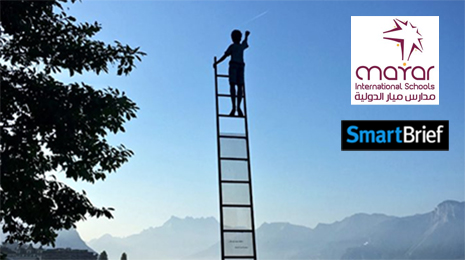
Originally published by SmartBrief on March 30, 2022
Mayar International Schools maintain a high level of success. Cognia Accreditation provided the tools to maintain focus on overall school quality and ensure a top-notch education.
I’ve been the general director of Mayar International Schools in Amman, Jordan, since its founding in 2011. Our schools’ national and international academic programs serve more than 2,000 pre-K through 12th-grade students. One of our students placed third in the worldwide Maths International Advanced Level AS-Level scores from Pearson Edexce, and seventh in physics. Another placed first in the Hashemite Kingdom of Jordan’s General Certificate of Secondary Education exams for Arabic as a first language.
One of our biggest challenges is maintaining that high level of success. The education landscape is constantly changing. Educators need to continuously learn and improve so that they can keep pace with those changes and keep delivering the quality education students deserve.
That’s why MIS has amassed more than a dozen accreditations. Each accreditation helped us refine the way we approach academics. But our most recent accreditation, from Cognia, was designed to help us focus on the overall quality of our school. We met the challenge.
5 actions that lifted our schools higher
1. Learn new tools and practices regularly. We make a practice of adopting resources and techniques that promise to improve student performance and our organizational effectiveness. For example, we immediately began using a learning management system, a school management system and flipped learning when we founded MIS in 2011. Those tools and practices enabled a smooth transition into distance learning when the pandemic caused lockdowns.
During the lockdowns, our teachers adopted several new technologies, from apps to online games and activities. Once we were back in the physical classrooms, they asked me to buy extra laptops and iPads so their students could keep using those tools. Now whether it’s a pandemic, snowstorm or a student’s personal situation (such as illness) that prevents in-person learning, we’re ready to implement distance learning.
Additionally, during our accreditation process, we acquired a new classroom environment tool that appraised the whole classroom, including students’ experiences. Our previous observation tool only evaluated teachers’ performances, so this was a huge improvement. We also adopted new survey tools such as a climate and culture instruments, back-to-school readiness surveys and remote-learning surveys.
2. Implement comprehensive staff development. Although each member of the administrative team has a particular specialty, everyone went through training for the entire spectrum of accreditation standards. The comprehensive training has helped to mold many of my team members into true leaders. Plus, they can now support each other in different aspects of their jobs.
3. Make mission and vision into relevant guiding principles. It’s part of our philosophy to review the vision and mission statements every year and determine how much they still help us in our work. When we updated the statements eight years after the school’s founding, we sought input from multiple groups of stakeholders. Our public relations department released the revised document to the public through videos, social media venues, the school website and hard copies.
Although we updated the statements before beginning our newest accreditation process, I had already started reading the accreditation standards. That expanded my thoughts regarding our vision and mission.
4. Appreciate and highlight past accomplishments. It’s quite easy to move on to the next problem or challenge without stopping to appreciate what you’ve done. But when you do that, you only see that you’re struggling with different situations. Taking the time to recognize your achievements gives you confidence for future endeavors. Plus, being able to cite those successes will boost your institution’s credibility with parents and students.
5. Emphasize student engagement. We have observed that the classes students most enjoy are the ones that challenge them and keep them actively involved. We encourage our staff to explore instructional strategies that promote creativity, innovation and collaborative problem-solving.
Read the full article on SmartBrief.
Nadia Kharbat is the general director of Mayar International Schools in Amman, Jordan.
Read more details about Mayar’s success and share with your teams. View the case study>
(Image credit: Armand Khoury/Unsplash)